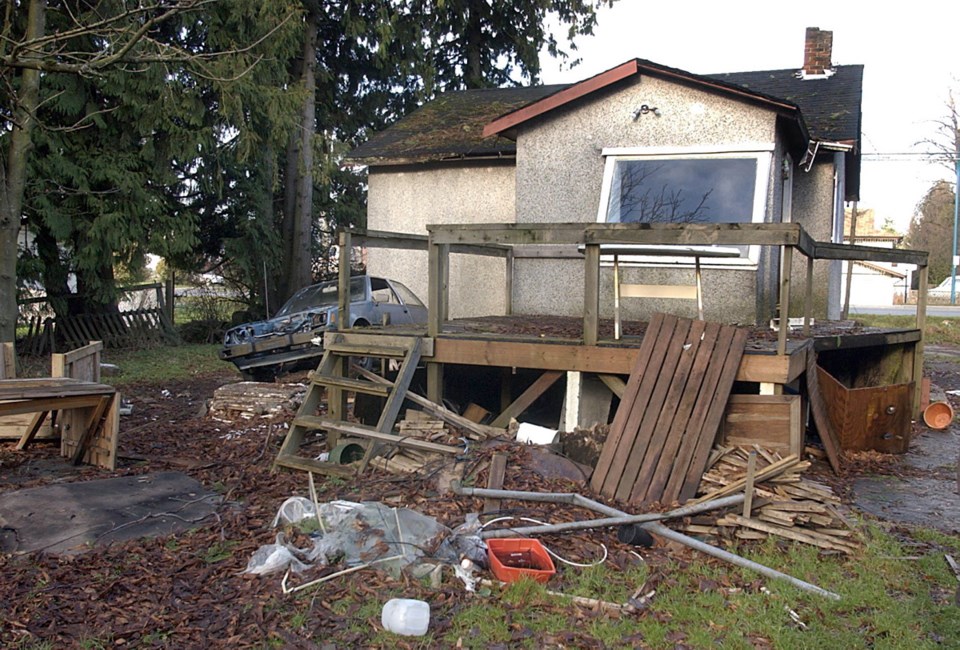Frustrated neighbours of crack shacks, drug dens and other troublesome properties will soon be able to make confidential complaints to a government office that can shut down the sites.
Justice Minister Shirley Bond said the new office, introduced in the legislature on Thursday, would investigate troublesome properties, and get owners to clean up their act and deal with neighbourhood complaints.
“Imagine for a moment that there is a crack shack on the street where you live,” Bond said. “The problem started with vehicles coming and going all hours of the day and night, people yelling on the sidewalks late at night, maybe you witnessed used syringes or drug paraphernalia on the lawn … You, of course, called the police, who kept showing up to investigate and make arrests.
“But even though the characters might change, the problems don’t go away. We intend to give neighbours of properties like these a safe and effective and timely solution, one that holds property owners accountable when dangerous and threatening activities regularly occur on their property.”
A new provincial director of community safety will accept anonymous complaints and investigate properties such as party houses, marijuana grow-ops, prostitution sites, drug- trafficking operations, gang hangouts and anywhere liquor or weapons are unlawfully possessed, the government said.
The office has the power to send warning letters and apply to a court for a community safety order.
With a court order, the government can evict troublesome tenants, erect fences, install locks, alter property without consent and shutter an entire site for up to 90 days, according to the bill tabled in the legislature.
Complaints are confidential, and if the identity of a person complaining is known, it can’t be shared with police, the courts or anyone else without permission, the proposed act says. The landlord or property owner gets a bill for the government’s work.
Police praised the move and said problem properties can be a source of crime.
“For us to go to a home that’s being used as a crack shack and the landlord is absentee, which they are the vast majority of times, this allows some pressure to be put on the landlord to clean up their act, especially if it’s an ongoing problem,” said Saanich Police Chief Mike Chadwick.
In Saanich, the biggest problem is absentee landlords who “turn a blind eye as much as they can” to the drug and criminal activity of their tenants, Chadwick said.
The property is rented again and again to the same type of people, despite arrests, he said.
The proposed law says landlords and owners who don’t comply with orders are subject to a $10,000 fine and six months in jail.
The fine rises to $100,000 for repeat offences if the owner or landlord is a corporation.
NDP critic Bruce Ralston said the idea is almost identical to a bill he introduced in 2009, but which the Liberal government did not support. It’s a useful tool for police and neighbours, and it’s likely the Opposition will support the bill’s passage into law, he said.
Other Canadian provinces have similar offices in place, Bond said.



